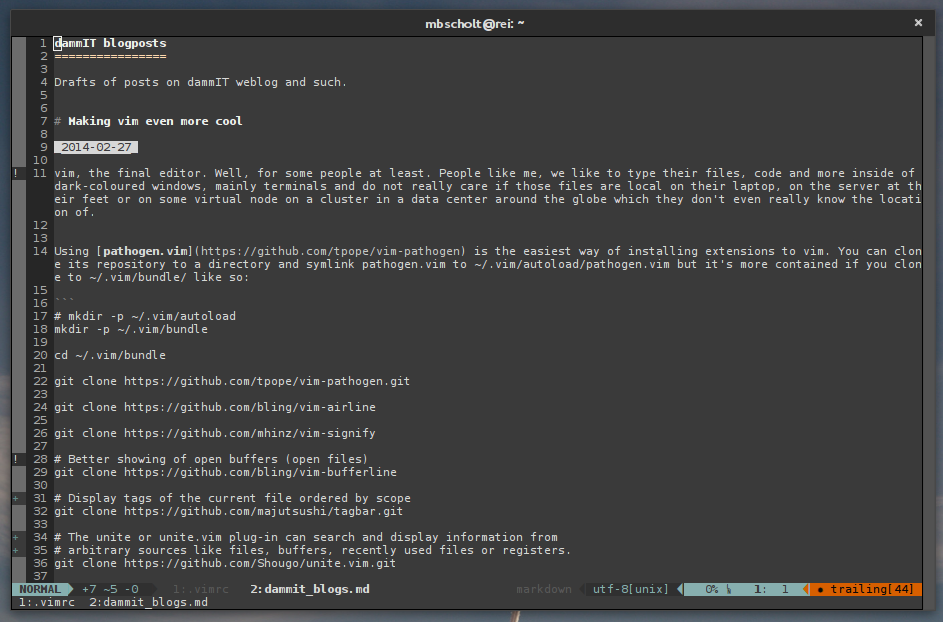- Fri 24 August 2012
- howto
- Michiel Scholten
- Home
- #howto, #opensource, #desktop, #tech, #linux
If you are running a unix-like machine, like a Linux workstation, or BSD or Apple Mac, you might be acquainted with the ~/.ssh directory. SSH stores known hosts in their, as well as your public and private SSH keys and more important stuff.
The contents of a ~/.ssh/config look something like:
Host homeserv
HostName home.mydomain.net
Port 22
User michiel
# Routers, so I config them from on the road
LocalForward localhost:8001 192.168.1.1:80
LocalForward localhost:8002 192.168.1.2:80
LocalForward localhost:
# SickBeard
LocalForward localhost:8081 localhost:8081
Host dev
HostName dev.corp.net
Port 22
User mscholten
Of course you can add as many 'Host' configs as you like.
You can now use these configs from your terminal: ssh dev instead of ssh mscholten@dev.corp.net (or those long lines with port forwards you tended to create an alias for in ~/.bash_aliases).
Bonus: if you are running gnome-shell on your machine, you can install the SSH search provider extension, so you can directly launch a terminal with all settings in place from the overview page. Productivity boon in my not-so-humble opinion ;)
For more information, see Advanced SSH configuration and tunneling: We don't need no stinking VPN software.
Also, if you want do some VPN-like stuff, you really need to check out Never again be thwarted by restrictive "guest" wifi (e.g. on buses or airplanes). The sshuttle proxy they use is really nifty.


